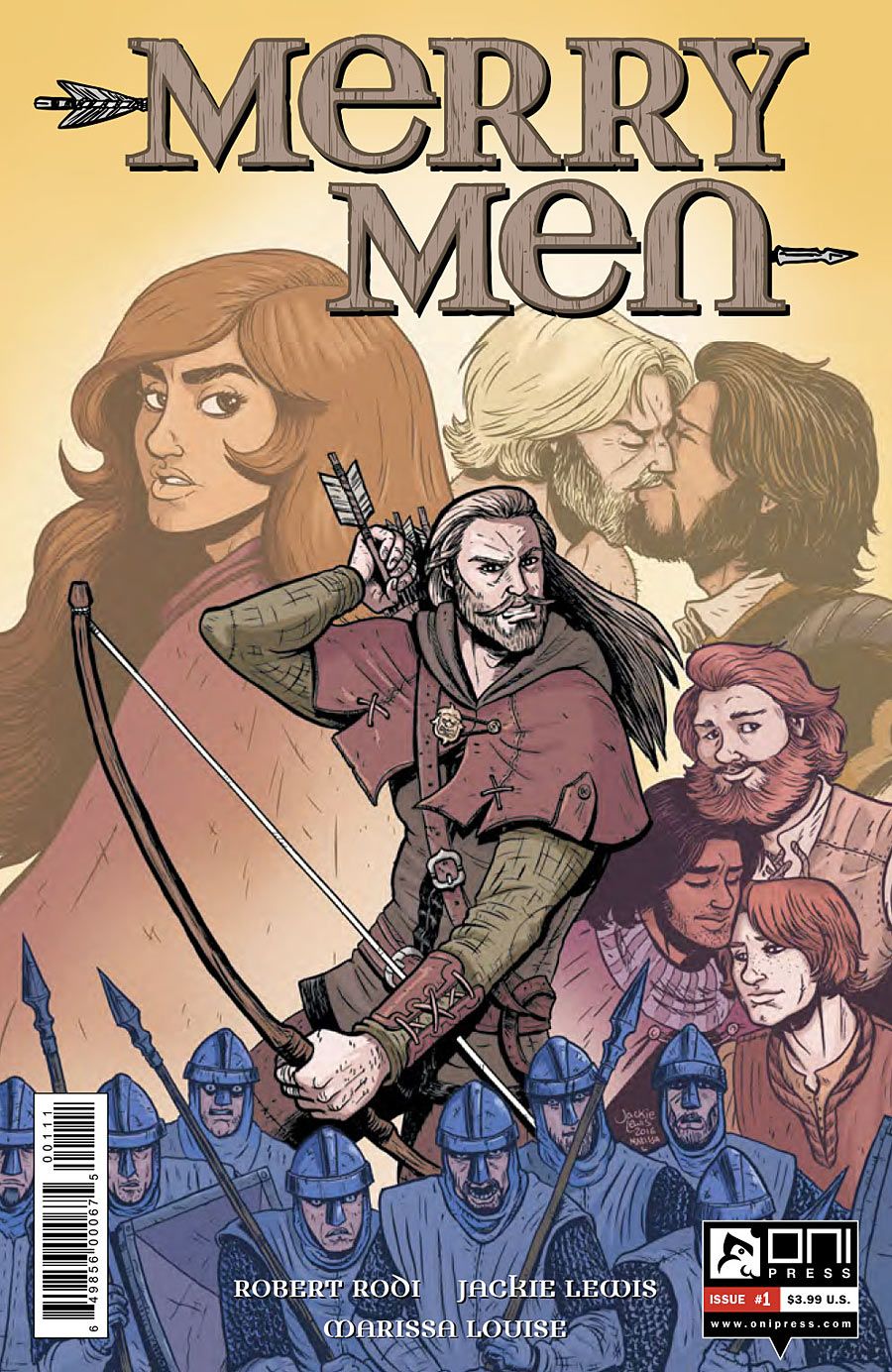Robert Rodi and Jackie Lewis' "Merry Men" #1 kicks off a retelling of the legend of Robin Hood with an LGBT twist. Despite a strong opening sequence, the issue flags under the weight of too much exposition and its tendency to rely on its concept rather than its story or characters.
The first page is heavy with captions about the time and place, but it would have been better to cut it out entirely; the chase scene featuring Arthur-A-Bland and Alan-A-Dale is a better beginning, as their interaction is endearing. The result of the chase isn't a huge surprise to readers who are aware of the LGBT angle, but the pacing still effectively plays with the reader's expectations. Unfortunately, this scene is the strongest in the entire issue. For most of the rest of "Merry Men" #1, Rodi tells the reader about the setting, conflict and characters, instead of showing who and what they are through action and dialogue. He delegates too little of the storytelling to the artwork.
The first half of "Merry Men" #1 is dedicated to Robin's dithering about whether he should make a move against the Sheriff of Nottingham. Rodi doesn't build up the tension or the stakes, so Robin's indecision merely creates impatience rather than suspense. Rodi's archaic-sounding diction makes all of the dialogue stilted, put-on and formal-sounding, which serves as a barrier to immersion and doesn't add the intended verisimilitude.
Lewis' facial expressions lack subtlety, and many of the men have similar eyes and cheekbones, while her action scenes are cartoonishly gory without being exciting or energetic. Marissa Louise's color palette is uniformly cool and pale, and it does little to reinforce shading or mood. As the use of monotones in the nighttime scenes flattens the artwork, Lewis' empty backgrounds don't help, either.
The supporting cast is introduced by Alan-A-Dale, who welcomes a new character into the fold. Despite Alan's praises, none of the men leave much of an impression. They are distinguished only by hair, body shapes and skills. Their personalities don't have any edges and their speech patterns are indistinguishable from each other. Alan-A-Dale is the biggest talker and is better-defined than Robin or Little John by the end of "Merry Men" #1, but that doesn't mean he's a likable or anchoring presence. He comes off as an unctuous, handsy braggart. The scimitar joke he makes falls flat and it doesn't get any funnier the second time.
The plot gets a slight boost when one of the characters confesses to being transgender. However, the confession itself feels bland and thin on details. The reader doesn't know enough about Scarlet yet to make her bravery more profound. Instead, it just looks very foolish for her to out herself to a near stranger who isn't exactly a model of moral rectitude.
Alan-A-Dale's speech about brotherhood and a life of freedom on the margins of society is overlaid in captions over some gruesome violence. This pairing of images and text doesn't add to the characters or to the themes of the story. If anything, it diminishes the heroism of resistance and being out of the closet. The same goes for Alan-A-Dale's lechery, which undermines his acceptance and seeming compassion for Scarlet.
While the confrontation and battle between Robin and the Sheriff of Nottingham is inevitable, Rodi still fails to build up interest in the characters and tension about the eventual outcome of the story. "Merry Men" #1 relies too much on its concept to generate interest in the plot and the characters.

